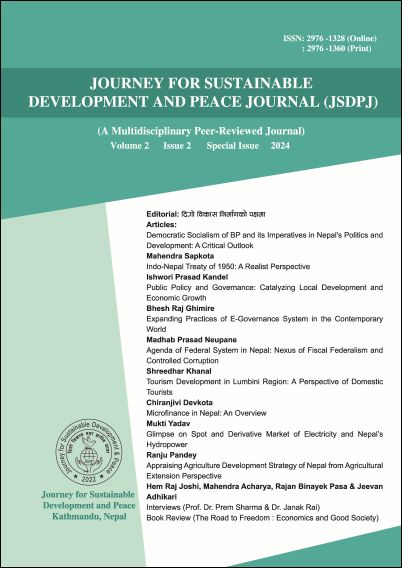Democratic Socialism of BP and its Imperatives in Nepal's Politics and Development: A Critical Outlook
DOI:
https://doi.org/10.3126/jsdpj.v2i2.69560Keywords:
Democratic socialism, BP Koirala, Nepali Congress, Nepalese developmentAbstract
This paper explores Bishweshwar Prasad Koirala’s interpretation of democratic socialism and its influence on Nepal’s political and developmental trajectory. Adopting a review-based methodology within a critical framework, the research delves into BP’s principles of democratic socialism, which aim to blend democratic governance with social fairness and economic equity. The study evaluates how these principles were reflected in development policies during the Nepali Congress leadership, noting both positive outcomes and limitations. Additionally, it addresses the substantial obstacles encountered in applying democratic socialism in Nepal, such as political instability, leadership crisis, economic constraints, and societal challenges. In conclusion, the paper assesses the ongoing significance and future prospects of democratic socialism in Nepal, advocating for its effective theorization and application through development strategies centered on the people, improved governance practices, and reinforced institutional structures to promote political morality and sustainable development.
Downloads
Downloads
Published
How to Cite
Issue
Section
License
This license enables reusers to distribute, remix, adapt, and build upon the material in any medium or format for noncommercial purposes only, and only so long as attribution is given to the creator.




